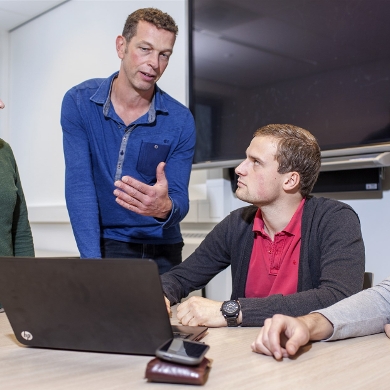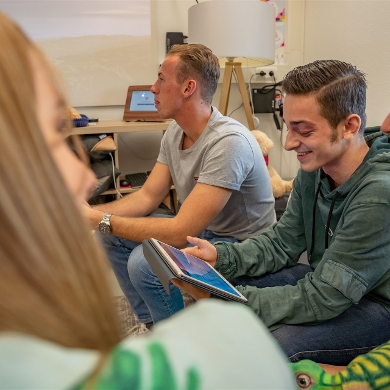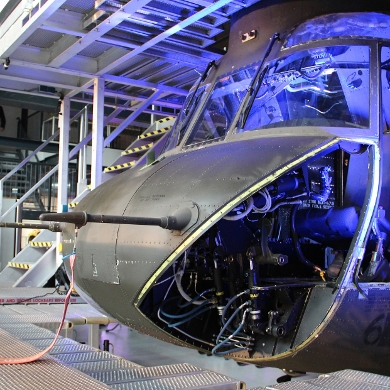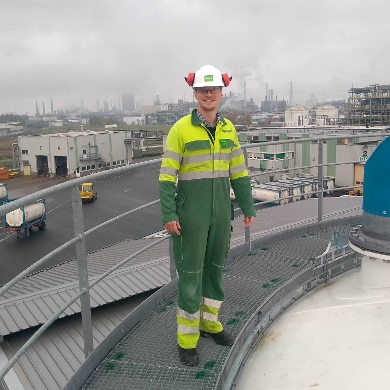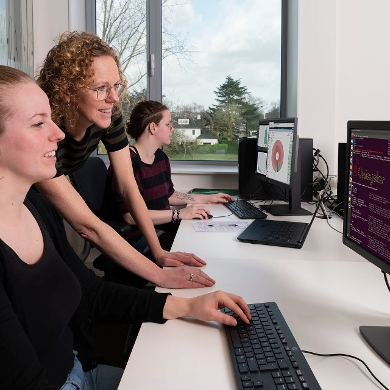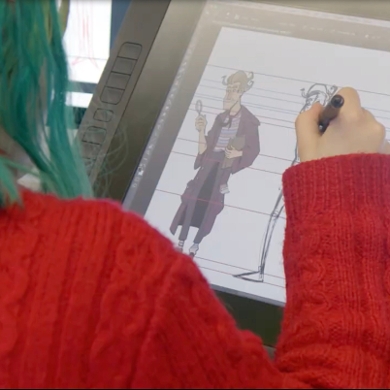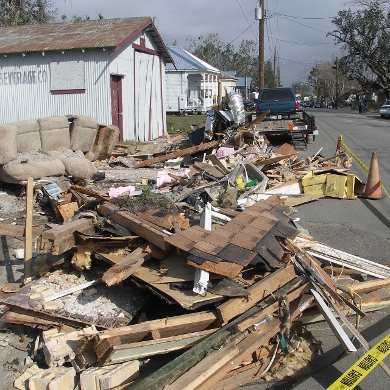1 - 10 of 30 programmes
-
21st Century Urban Innovation
BredaContinue readingAre you interested in experiencing what it would be like to advise clients in the field of innovation and urban renewal? Then choose the Urban Innovation minor.
-
ACT - Act for Change Together
BredaContinue readingThis programme is about contributing to society with your own projects in topics as well-being economy and new entrepreneurship.
-
Aerospace Engineering & Maintenance
BredaContinue readingAerospace Engineering & Maintenance is an introduction to the aviation industry. This minor is for people pursuing a career in aerospace and who wish to find out what it takes to apply their knowledge and skills in this field.
-
Aquacycle: Circular Water Technology
BredaContinue readingYou will dive deep into the vital role that water plays in our environment and society. You'll explore technologies to manage and protect this precious resource in a sustainable, circular approach.
-
Biobased Technology and Business Development
BredaContinue readingWhat the world needs right now is new ways of exploring and marketing new sustainable technologies. Join an international group to learn about them from a technical, financial and marketing perspective, and discover the possibilities of developing new biobased business ideas.
-
Bioinformatics
BredaContinue readingBioinformatics is a combination of life science and informatics. In this programme you will learn how to process and visualize biological data.
-
Biotechnology
BredaContinue readingThis programme explores the world of biotechnology. You will learn how to conduct experiments and research in laboratories and create a biotechnological product. You will gain an insight into biological processes inside the cell.
-
Business, Leadership and Sustainability
BredaContinue readingWork in interdisciplinary teams with students and companies from all over the world. Learn how to think as an entrepreneur and develop an innovative skill set. Use creative, innovative methods to develop new sustainable business models and grow as a leader. Learn how to make an impact and become a game changer.
-
Development for visual storytelling
BredaContinue readingThis programme is about developing a concept in visual storytelling. You will think up ideas for a graphic novel, story book, TV series, or film, and learn to develop them into a professional pitch package.
-
Disruptive Events
TilburgContinue readingThis programme teaches you professional strategies for dealing with disruptive events in society, such as natural disasters, migration, terrorist attacks and climate change.
